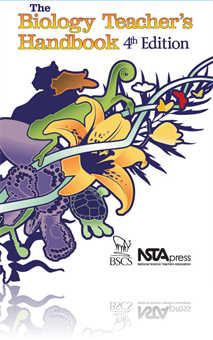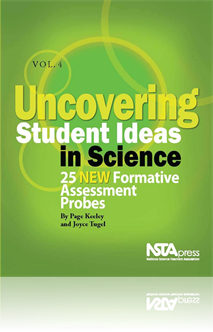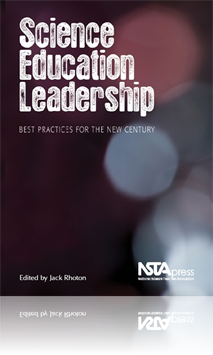All Book Chapters
Book Chapter
Unifying Principles of Biology
This chapter outlines six unifying principles educators can use to organize biological concepts, thus helping to unify the otherwise disparate facts of biology. These unifying principles represent a comprehensive foundation for the biological science...
Book Chapter
Attending to Conceptual Challenges
This chapter examines some of the conceptual and reasoning difficulties commonly encountered within each unifying principle of biology, as well as those iinherent to understanding the nature of science. Suggestions are provided for teachers to uncove...
Book Chapter
Getting Started With Inquiry: Six Invitations
Student participation in inquiry serves two objectives—first, students discover that science is something more than merely learning what others already know—and second, students develop skills in interpreting data and in understanding scientific ...
Book Chapter
In the full inquiry experience in this chapter, students will put skills of inquiry together as they think like scientists and apply critical-thinking skills to evaluate new information that they collect themselves. In full inquiry, students assume m...
Book Chapter
Perspectives on Contemporary Controversial Topics in Biology Education
This chapter describes three different types of controversy and makes the case for including controversial topics in your course syllabus. It offers suggestions for handling these topics in a way that helps students apply their scientific understandi...
Book Chapter
How to Set Up and Manage Your Biology Classroom
There are a number of important practical aspects to setting up and managing a biology classroom. These include strategies for organizing students into groups, conducting laboratory work, maintaining live organisms in the classroom, leading field tri...
Book Chapter
The purpose of this assessment probe is to elicit students’ ideas about infectious disease. The probe is designed to find out whether students use the germ theory to explain what causes an infectious disease like the common cold. This free selectio...
Book Chapter
The Role of Leadership in Fostering Inquiry-Based Learning and Teaching
In this chapter, the author first address the concepts of inquiry and leadership presented in the National Science Education Standards (NRC 1996). Then presents examples of leaders who foster inquiry-based learning and teaching within the context o...
Book Chapter
Bending the Professional Teaching Continuum: How Teacher Renewal Supports Teacher Retention
This chapter is built on the premise that science teachers develop their practice along a professional continuum that consists of recruitment, preparation, new teacher induction, ongoing professional development, and advanced certification or master ...
Book Chapter
No Boundaries: The Role of Mobility in Recruiting New Teachers and Developing New Leaders
The development of teacher leaders in any discipline is hindered when the pool of available candidates is shallow, and developing science leaders—whether at the classroom, district, state, or national level—largely depends on having a rich and ro...
Book Chapter
Professional Learning Communities: School Collaboration in Implement Science Education Reform
It has never been more important for teachers to work together. We must learn from each other, open up our classrooms, share student work, serve as mentors and coaches, and work with mentors and coaches. Until recently, training and professional deve...
Book Chapter
This chapter addresses how to create a community of minority science teacher leaders who are not only committed to teaching in urban schools, but also to helping close the achievement gap, especially in the area of science education. It also explores...
Book Chapter
Assessing Assessment to Inform Science Leadership
This chapter uses the ReaL Earth System Science project as a metaphor for investigating the landscape of assessment in science education. This framing turns the focus of the five questions away from the Earth system and toward the system of education...
Book Chapter
Care to Share? The Marymount School Science Department Professional Development Program
This chapter reveals how one school, The Marymount School of New York, developed a goal-setting model. This model effectively promotes innovation in the classroom, in the curriculum, and in the school and involves teachers in the decision-making proc...
Book Chapter
Leadership for Public Understanding of Science
Science is generally considered to be one of the most important subjects in the school curriculum, even if it does not receive as much attention as math and reading-language arts, which have always formed the central core of the elementary school cur...




